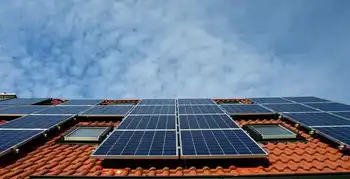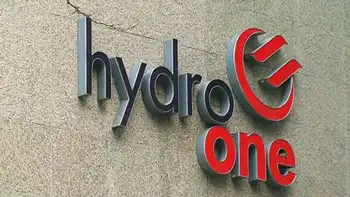U.S. solar stocks knocked by German demand fears
By Reuters
Protective Relay Training - Basic
Our customized live online or in‑person group training can be delivered to your staff at your location.

- Live Online
- 12 hours Instructor-led
- Group Training Available
Shares of First Solar Inc, Suntech Power, Yingli Green Energy and LDK Solar Co Ltd all slipped 2 to 3.5 percent as Germany, the world's largest renewable energy market, prepared for the Free Democrats to join Chancellor Angela Merkel's conservatives in a governing coalition.
The Free Democrats (FDP), who have called for reduced solar supports, are expected to replace the Social Democrats (SPD).
"The elections are likely to be a negative for the sector," said Gordon Johnson, analyst with Hapoalim Securities.
Solar companies have struggled with an oversupply of cells and modules this year as a cutback in Spanish subsidies and the global financial crisis knocked demand for the systems that turn sunlight into electricity.
Still, the shares had rebounded in September on hopes that demand growth was returning to the nascent companies. First Solar shares have jumped 22 percent since the end of August, to $148.51 at mid-afternoon on Sept. 28. U.S.-based SunPower Corp and China's Suntech Power Holdings Co Ltd have gained 19 percent and 7 percent, respectively, since the end of August while Trina Solar Ltd hit a high for the year at $35.90 only recently.
Prices for solar modules have fallen by as much as 40 percent since the fourth quarter of 2008, eroding margins for many companies and raising worries that smaller companies may lack the resources to withstand the downturn.
Cowen & Co analyst Rob Stone said solar stocks were "somewhat oversold" in August as companies expected price erosion to continue, putting pressure all the way down to their bottom line.
"The bear argument was that you had this pricing spiral going on with no bottom in sight," Stone said.
"The thought (in August) was that, yes, Q3 might be OK, but then you've got six months of unknown territory to cross with lower volume, falling prices and margin pressures. So it's probably better to sell them and come back in the springtime," Stone added.
Since August, however, companies have been shipping strong enough orders so that bookings have stretched into December, shedding some light on how the fourth quarter might look, Stone said.
The solar power industry's busiest season tends to be the third quarter.
An uptick in demand, the stock market gains on Wall Street and firmer oil and natural gas prices also helped lift the solar sector this month.
"The idea being if energy prices are higher, companies are more willing to invest and there will be more capital to build solar projects," Pavel Molchanov, analyst with Raymond James.
Some analysts warned that the rally might be premature if the rise in demand turns out to be only seasonal. Hapoalim's Johnson said expectations that Germany could reduce its supports for solar in 2010 or 2011 was driving demand for equipment higher this year at the expense of future sales.
German demand was forecast to be about 1.5 gigawatts in 2009, but may reach as much as 2.0 to 2.2 GW as customers speed up orders, he said.
And with the price for solar modules sharply below year-ago levels, new sales will not necessarily equal rising profits.
"In a muted pricing environment, you really need to have this unit growth continue throughout the next year. Right now it's a bit early," said Oppenheimer and Co analyst Sam Dubinsky.












